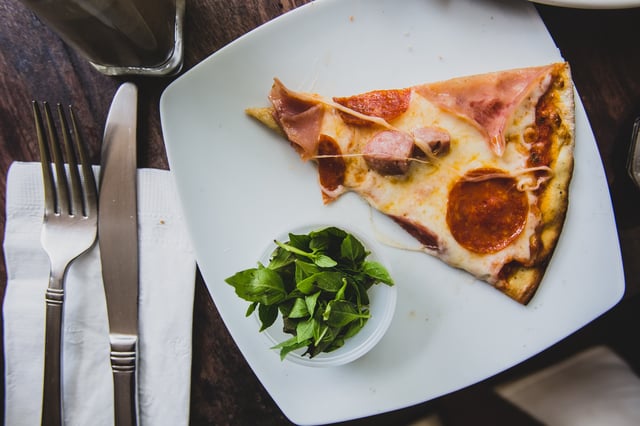
It's no secret that athletes load up on carbs prior to major races or games. Soccer players will be stuffing themselves with pasta prior to important matches, and most marathons organize a pre-race pasta party. The aim of this is to carbo-load in anticipation of a big day, but why?
Carbs and glycogen reservoir in muscles
Food such as pasta, potatoes, and rice are great sources of carbs. Once ingested, your muscle will store the carbs as glycogen in your muscles and liver. Glycogen, along with fat, is an important energy fuel for your body during strenuous activities such as long runs or a soccer match. The difference is that glycogen is a more efficient source of energy when compared to the less efficient energy source: fat.
The dreaded 'Wall'
One part of your marathon training should be focused on getting your long runs in for various reasons. The most important one being the ability to prepare your body and mind for the changes it needs in order to run 42.2 kilometers. During your long runs you can experiment with nutrition, gels, and pace. It prepares your legs to be able to get used to being tired and your mind to have the determination to go on when the going gets tough. Let's not forget the various physiological changes your body goes through such as developing your slow twitching muscle fibers which help you run for longer period of times (another blog post all-together).
When it comes to fuel, experimenting with pace can mean the difference of consuming glycogen in an efficient manner in order to last you longer and avoiding banking on fat as your source of energy (fat demands more oxygen when compared to glycogen, and oxygen is key when you're running at marathon race pace). But inevitably, your chances of hitting the dreaded 'wall', enemy number one of any first time marathon runner, is significant. This is why understanding the role carbo-loading plays in your arsenal is key. Hitting the wall basically means, running out of energy and the effects can translate into being unable to walk any further, or your mind being so depleted that it cannot push you to overcome this major obstacle. It becomes either a complete stop, or an agonizing struggle to finish.
So, is pizza a good way to carbo-load?
What about pizza and carbo-loading, is it a good strategy...It's not necessary that pizza is a bad idea, of more importance is how much carbs are you ingesting for your body-weight and the amount of fat that goes along with it. This is why not every kind of pizza might be a great option, and why a tomato based pasta might be your new ally.
A general rule of thumb is to eat 7 to 10 grams of carbohydrates per kilograms of your bodyweight for each of the 3 days prior to race day. Additionally, the day before race day, try and rest as much as you can to keep your reservoir in tact. As an example, a woman who weighs 53kgs, would have to consume between 371 and 530 grams of carbs for 3 days prior to marathon day. Now, this might be a difficult achievement, but with proper planning you can get pretty darn close!
Plan smart and experiment during your long runs
Your aim should be to get in as much carbs as you can without increasing your calorie intake, thus limiting, but not removing fat and proteins from your diet.
If we break it down in daily meals you can consider a plan such as:
Breakfast: oatmeals, nuts with berries and bananas, muesli with dried fruits, granola mixed with fruits, whole wheat pancakes with banana and berries, power shakes.
Lunch and dinner: baked potatoes with tuna, pasta with tomato sauce, noodles, vegetarian wraps, or a tomato based pizza with no cheese (aim for a low fat self made pizza).
Snacks: nuts and seed bars with dried fruits, whole wheat banana muffins, granola bars, fresh fruits and veggies.
So, the bottom line is to start experimenting during your marathon training with the right nutritional plan in preparation for marathon day. Aim to focus on the 3 days leading up to your long run, and plan your carb intake. Marathon training involves not only getting the mileage in, but also fueling your body to be able to withstand glycogen depletion and hitting the wall. And for the sake of all the pizza lovers out there, feel free to count on pizza, just remember to keep a healthy balance between carbs, fat, and proteins.
Your training and nutritional plan should be your best friends in this wonderful experience of marathon training! If you're ready to get a personalized one week training and nutrional plan, contact us to get started!
We've created a pre & post long run nutritional plan for you to try out next time you're lacing up.


